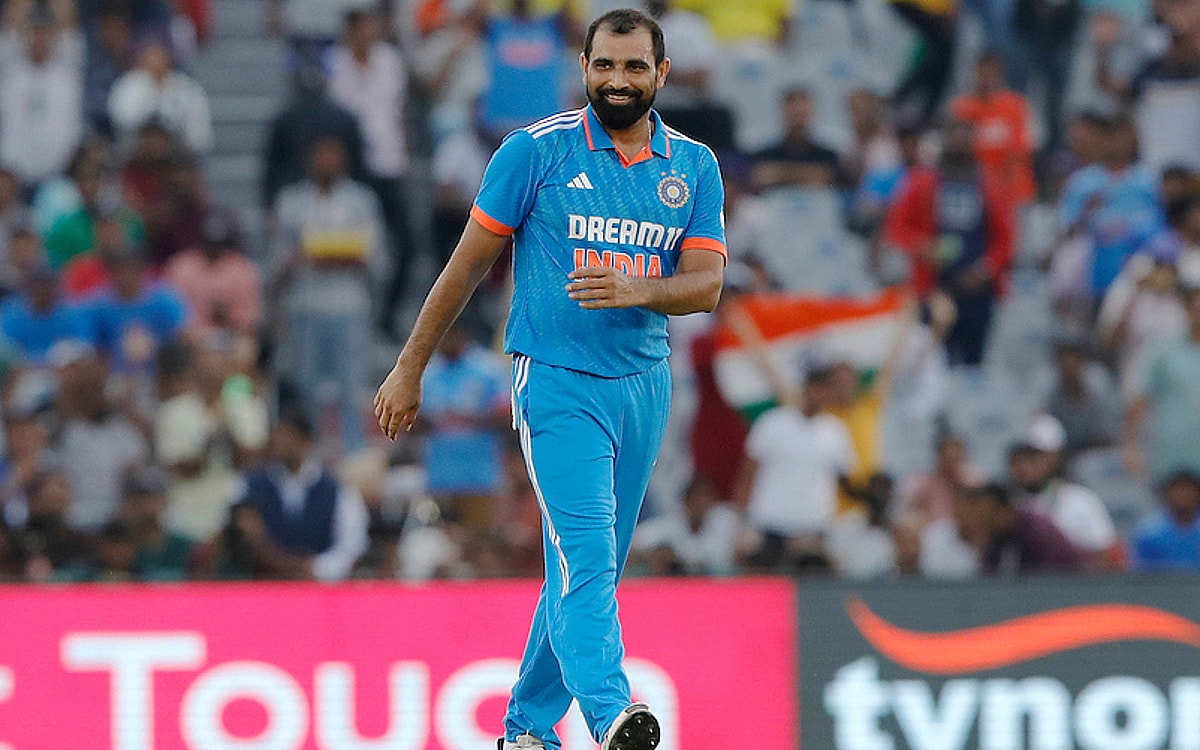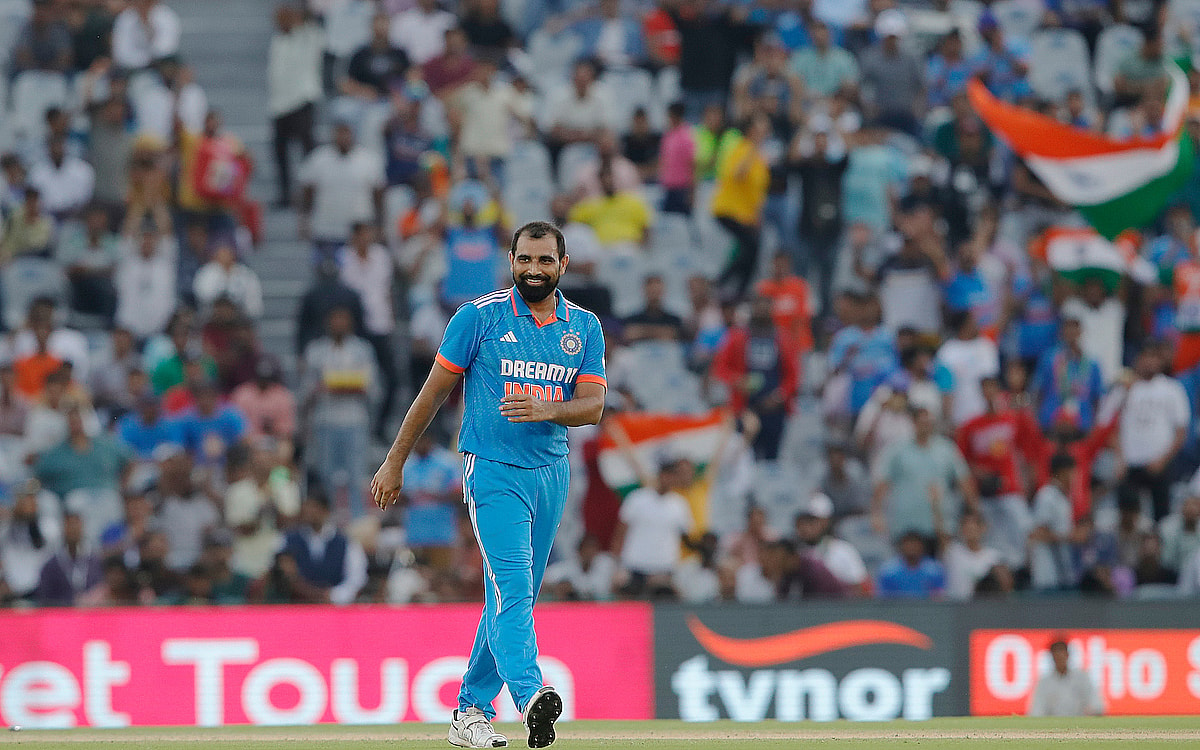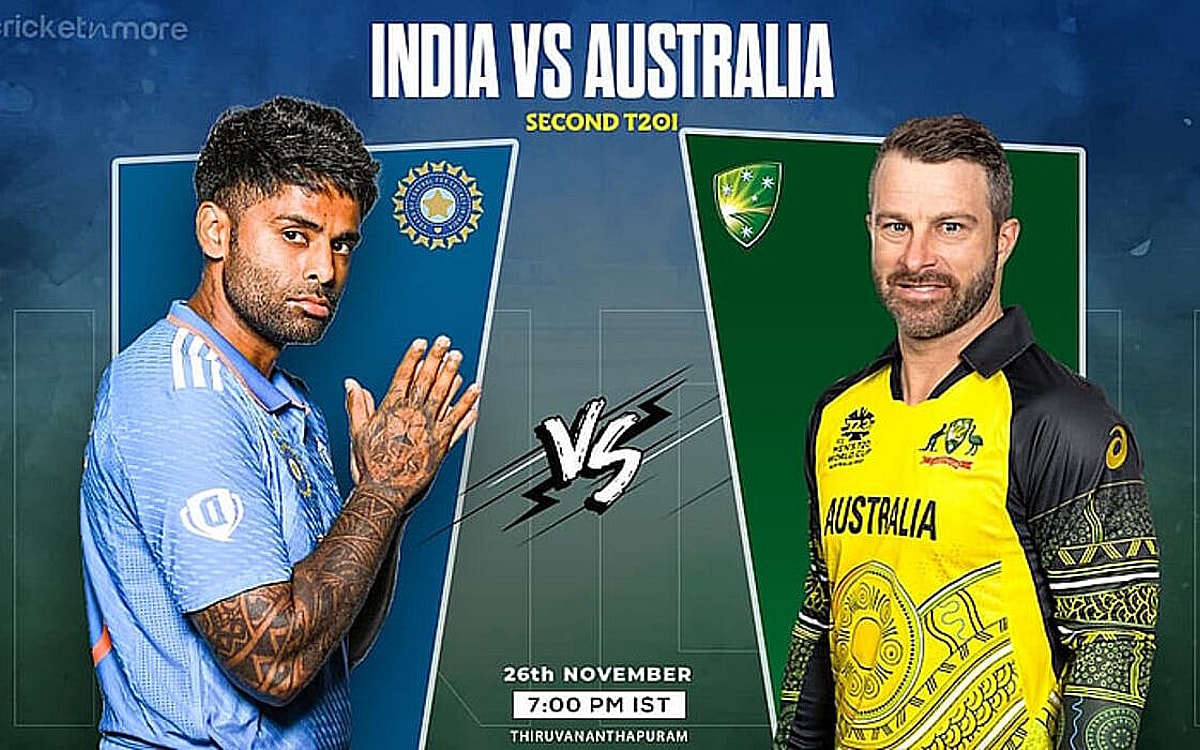ODI World Cup: After playing an emphatic role in India’s five-wicket victory over Australia with his second five-form in ODIs, veteran pacer Mohammed Shami strongly voiced in favour of the rotation policy adopted by the team management ahead of Men’s ODI World Cup, saying it helps those players get some game-time who haven’t been able to get their rhythm.
On a two-paced PCA Stadium pitch, Shami set the tone by dismissing Mitchell Marsh early, before returning to take out Steve Smith and triggered a late Australia collapse by taking out Marcus Stoinis, Matthew Short and Sean Abbott to pick 5-51, keeping the visitors to 276.
“When you build a team, the coach has a role to rotate players and based on the situation, it is decided. You must have seen we have got results due to rotation and I believe before the World Cup, you shouldn’t put too much load by playing back-to-back games. As of now, it’s going well, and we are getting good results.”
"It's good for us because rotating pacers is key in such conditions (ahead of the World Cup). It's more important for bowlers, not that it's easier for batters but still. Rotation is important especially before ICC tournaments. It particularly helps those who haven't been in rhythm to get some much-needed gametime," said Shami in the post-match press conference.
It was also the second successive, an Indian pacer took a five-wicket haul after Mohammed Siraj picked six in a deadly spell in the Asia Cup final in Colombo, as the hosts’ took a 1-0 lead in three-game series. Shami, who played in place of a rested Siraj, felt that bowling in extreme heat wasn’t an issue for him, though he did go off the field after bowling four overs.
"We never talk much about this (bowling in extreme heat) with respect to tactics. It totally depends on the state of the game if we are to bowl long or short spells, like how the opposition batters are. Heat is definitely a factor but when you've been playing international cricket for so long, it cannot be an excuse.
It doesn't mean a player's fitness or stamins has fallen or he is struggling. Players are also human. It also depends on how much effort you're putting in. Sometimes, if the surface isn't responsive enough, you have to put that much extra effort as a fast bowler and that makes a difference of one or two overs. It all depends on the on-field situation though," he added.
Shami also credited the support he got from pace spearhead Jasprit Bumrah, who took 1-43 in his ten overs. "It's satisfying as a bowler when you find rhythm on a surface that isn't naturally responsive to you. These things change your momentum and if you've noticed the Indian bowling attack over the last few years, you will notice that we always help each other out."
"If I take wickets, then Bumrah will be stopping runs at the other end. This kind of partnership bowling is very important. Someone will take more wickets than the other on a particular day but the supporting roles remain equally crucial."
Shami signed off by saying the decision to skip the West Indies tour helped him refresh himself after a very busy period of playing across formats.
“Whenever I have come back, I have had the same rhythm (in my bowling). I needed a break as I played cricket continuously for seven-eight months. In my mind, I was feeling that I need to take a break from the series (against West Indies), which was decided on conversations with captain and coach.”
Also Read: LIVE Score “But my rest never seemed like a break period because I have an elaborate training set-up back home for practising and conditioning. Usually, I end up training more at home than when I am with the Indian team.”




